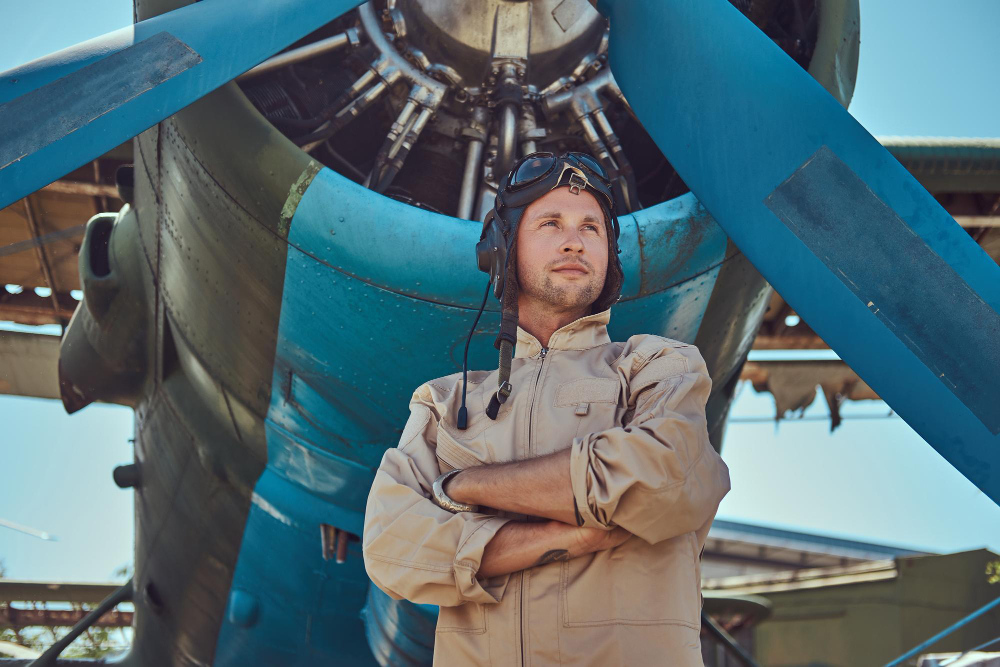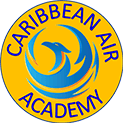How Aviation Training Builds Unshakeable Discipline and Confidence

The cockpit of an aircraft demands precision, quick thinking, and unwavering composure. These aren't just technical skills—they're life skills that extend far beyond the runway. Aviation training creates a unique environment where discipline and confidence aren't just taught, they're forged through hands-on experience and rigorous standards.
Whether you're considering a career in aviation or simply looking to develop stronger personal qualities, understanding how flight training shapes character can be eye-opening. The structured nature of aviation education, combined with its emphasis on safety and precision, creates an ideal foundation for building mental resilience and self-assurance.
Aviation training programs, particularly those in locations like Nassau where year-round flying conditions allow for consistent practice, offer students the opportunity to develop these crucial traits through real-world application. Let's explore how this specialized education builds the discipline and confidence that serves pilots—and people—throughout their lives.
The Foundation of Aviation Discipline
Aviation training begins with establishing strict protocols and procedures that become second nature. Students learn that every action in aviation has consequences, creating a mindset where attention to detail isn't optional—it's essential.
Pre-Flight Procedures Build Routine Excellence
Every flight begins with a comprehensive pre-flight inspection. Students must methodically check every component of the aircraft, following the same sequence every time. This repetitive process instills discipline by:
- Creating habits that prioritize thoroughness over speed
- Developing systems thinking where each step connects to overall safety
- Building patience and focus in high-pressure situations
- Establishing personal accountability for outcomes
The discipline required for pre-flight procedures extends into other areas of life. Students often find themselves applying the same systematic approach to work projects, personal goals, and decision-making processes.
Weather Assessment and Decision Making
Aviation training teaches students to make difficult decisions based on objective data rather than emotions or external pressure. Weather assessment, in particular, requires pilots to:
- Analyze multiple data sources simultaneously
- Accept limitations and make conservative choices
- Prioritize long-term safety over short-term convenience
- Take responsibility for decisions that affect others
This decision-making framework becomes invaluable in professional and personal contexts, where the ability to remain objective under pressure sets successful individuals apart.
Building Confidence Through Competence
Confidence in aviation isn't based on bravado—it's built through demonstrated competence and repeated success in challenging situations. Aviation training creates confidence by gradually increasing complexity while maintaining safety standards.
Progressive Skill Development
Flight training follows a structured progression that builds confidence naturally:
Ground School Foundation: Students master theoretical knowledge before applying it practically, creating a solid base of understanding that supports confidence in the cockpit.
Dual Instruction Phase: Learning alongside experienced instructors provides a safety net while students develop fundamental skills, allowing them to take risks and learn from mistakes in a controlled environment.
Solo Flights: Perhaps no experience builds confidence quite like successfully completing a solo flight. Students must rely entirely on their training and judgment, proving to themselves they have the skills needed for independent operation.
Advanced Maneuvers: As students progress to complex procedures like instrument approaches or emergency scenarios, each successful completion reinforces their growing competence and self-assurance.
Emergency Procedure Training
Aviation training includes extensive emergency procedure practice, which might seem counterintuitive for building confidence. However, this preparation actually increases confidence by:
- Removing fear of the unknown through simulation and practice
- Creating muscle memory responses that work under stress
- Proving students can handle worst-case scenarios
- Building trust in training and personal capabilities
Students who have practiced engine failures, navigation system malfunctions, and weather emergencies develop unshakeable confidence in their ability to handle unexpected challenges—both in aviation and in life.
The Psychological Benefits of Aviation Training
The mental demands of aviation training create psychological benefits that extend well beyond flying skills. Students develop resilience, focus, and emotional regulation that serve them in all areas of life.
Stress Management and Performance Under Pressure
Aviation training places students in controlled high-stress situations where they must perform complex tasks while managing multiple variables. This environment teaches:
- Compartmentalization of stress and anxiety
- Prioritization skills when everything seems urgent
- Clear communication under pressure
- Recovery techniques after making mistakes
These stress management skills prove invaluable in careers, relationships, and personal challenges where maintaining composure is crucial for success.
Goal Setting and Achievement
Aviation training involves clear milestones—solo flights, check rides, rating acquisitions—that teach effective goal-setting strategies. Students learn to:
- Break complex objectives into manageable steps
- Track progress through quantifiable metrics
- Persist through temporary setbacks
- Celebrate achievements while setting new targets
The satisfaction of earning a pilot's license or additional rating provides concrete evidence of personal capability, reinforcing confidence in the ability to achieve challenging goals.
Real-World Applications Beyond Aviation
The discipline and confidence built through aviation training transfer to numerous other fields and life situations. Former aviation students often excel in:
Leadership Roles: The decision-making skills and calm demeanor developed through flight training make natural leaders who can guide teams through complex challenges.
Technical Careers: The systematic thinking and attention to detail required in aviation translate well to engineering, medicine, and other precision-focused fields.
Entrepreneurship: The risk assessment skills and confidence in handling uncertainty serve entrepreneurs well when launching new ventures.
Personal Relationships: The communication skills and emotional regulation learned in aviation training improve personal relationships and conflict resolution abilities.
The Nassau Advantage for Aviation Training
Training in Nassau offers unique advantages for developing discipline and confidence. The consistent weather conditions allow for regular, uninterrupted training progression. The controlled airspace and professional training environment create ideal conditions for skill development.
The international atmosphere of Nassau aviation training also exposes students to diverse perspectives and procedures, broadening their experience and adaptability. This exposure builds additional confidence in handling varied situations and working with people from different backgrounds.
Your Journey to Enhanced Discipline and Confidence
Aviation training offers more than technical skills—it provides a transformative experience that builds character traits essential for success in any field. The discipline required by aviation standards and the confidence earned through progressive skill development create lasting personal growth.
The structured environment of flight training, with its emphasis on safety, precision, and continuous learning, provides an ideal framework for personal development. Students don't just learn to fly; they develop the mental tools and personal qualities that serve them throughout their lives.
Whether your goal is a career in aviation or simply personal growth, the discipline and confidence built through aviation training create a foundation for lifelong success. The skills you develop—systematic thinking, stress management, confident decision-making, and personal accountability—become valuable assets in whatever path you choose to pursue.
If you're interested in aviation training in Nassau, contact Caribbean Air Academy today to get started on your journey toward enhanced discipline, unshakeable confidence, and personal transformation through flight training.
